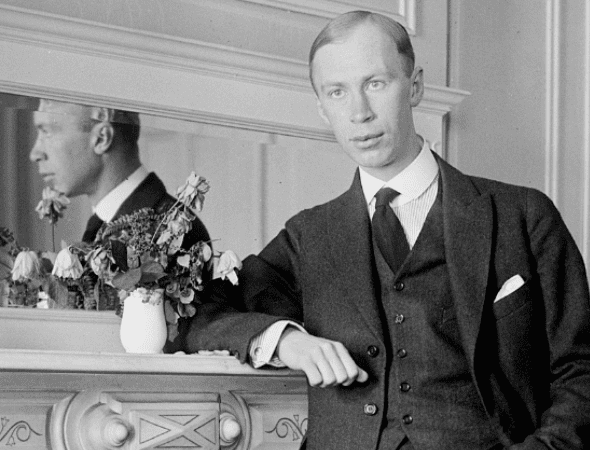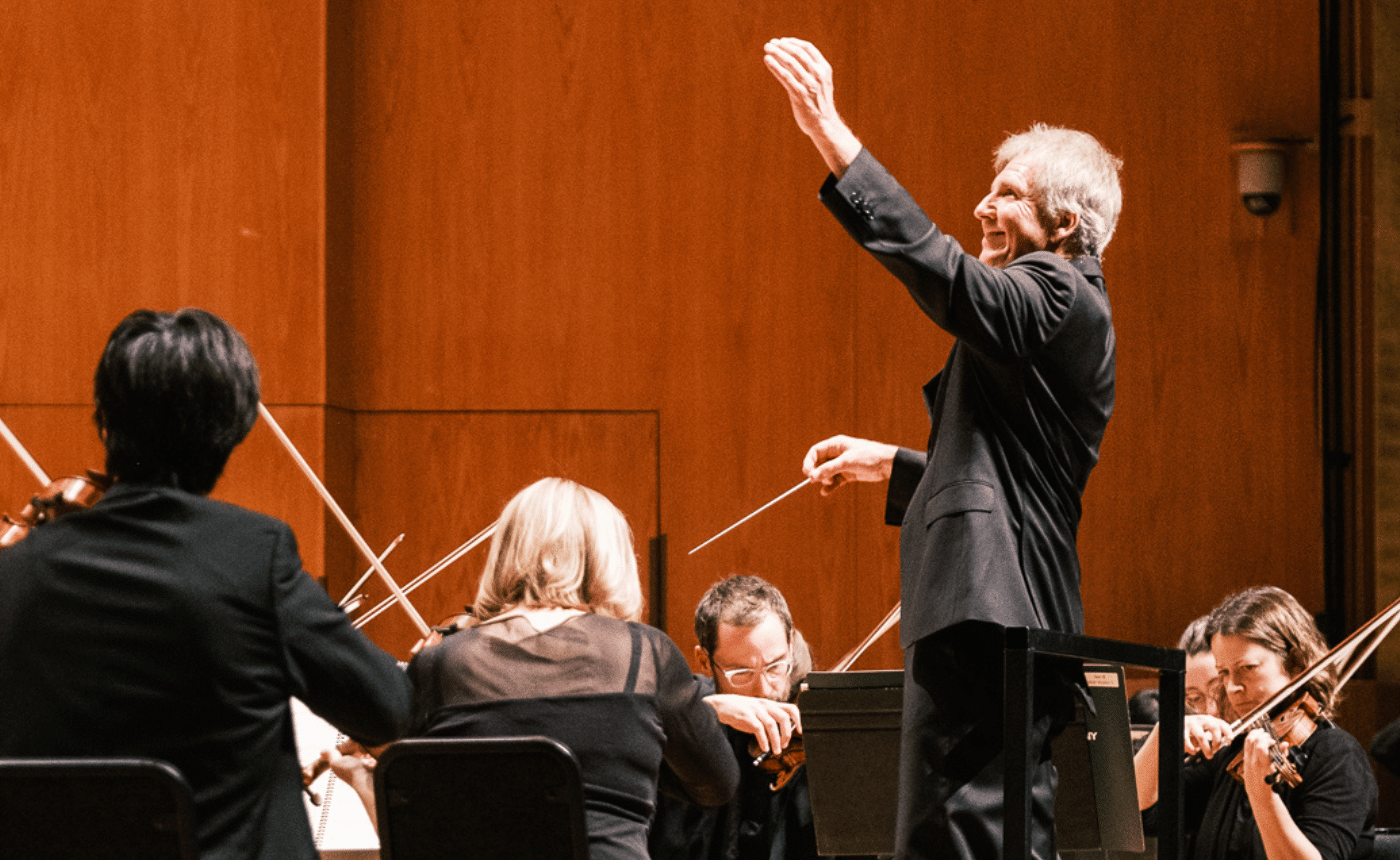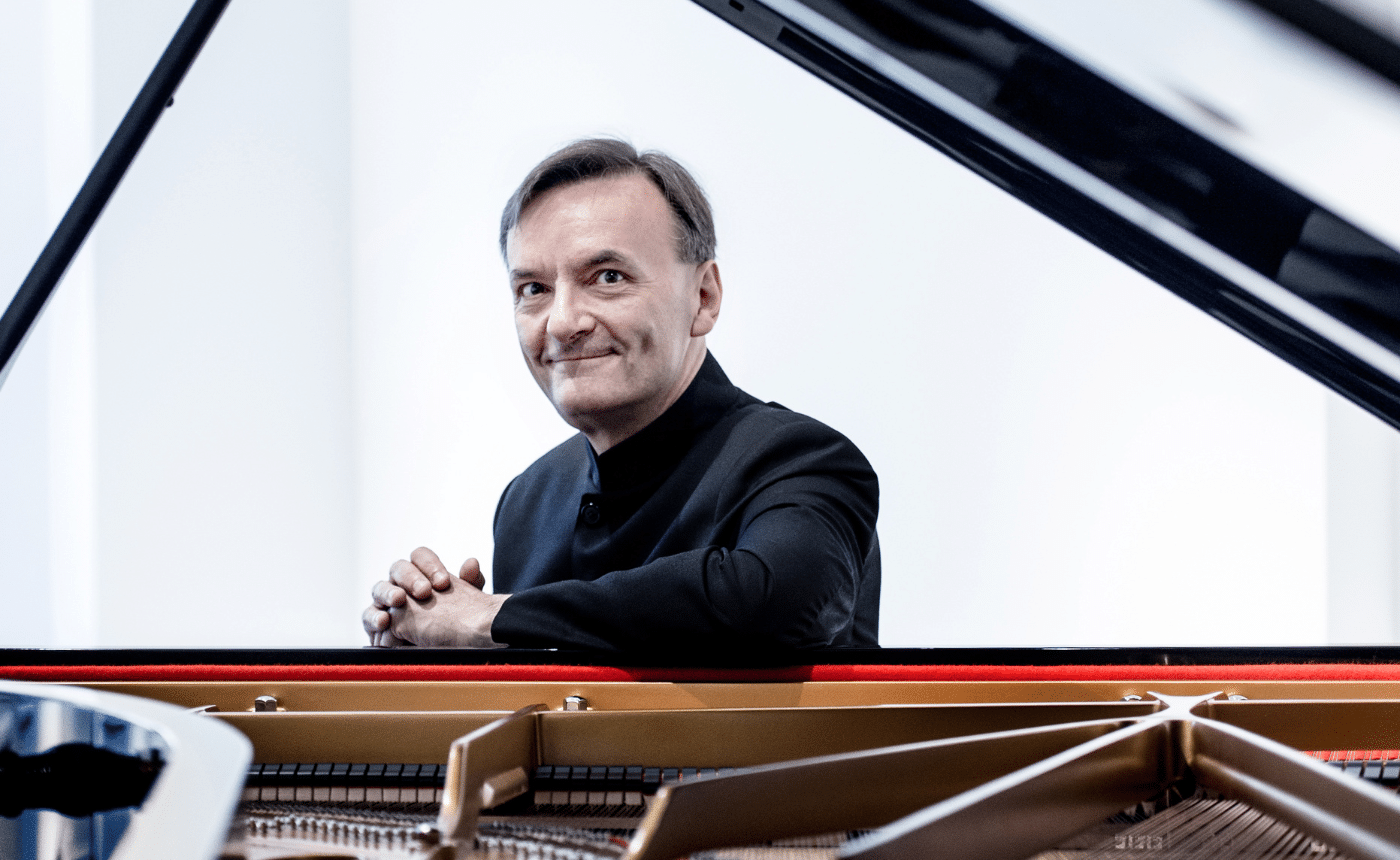PROKOFIEV: Symphony No. 5
by Jeff Counts
THE COMPOSER – SERGE PROKOFIEV (1891-1953) – Prokofiev spent the war years in various safe havens that allowed him to remain productive as an artist but could not redeem his standing as a husband and father. In fact, when he evacuated from Moscow in 1941 Lina and the children, unwilling to ignore his infidelity with the poet Mira Mendelson, stayed behind. Prokofiev spent the rest of the early 40s completing the first iteration of his magnum opus War and Peace while also attempting to master the delicate dance of Soviet approval. He returned home in 1944 with a full head of patriotic steam but suffered a fainting spell in January of 1945 that resulted in a serious concussion. He continued to work, even when he fell again (figuratively) from Party favor in 1948, but he was never the same.

THE HISTORY – Just a week prior to the accident that forever changed him, Prokofiev conducted the premiere of his magisterial Symphony No. 5 in Moscow. He wrote the work in a one-month sprint during the summer of 1944 with the war still raging across Europe and his nation throwing countless young bodies against the wall of fascism. The fervor he felt for the Soviet participation in the struggle was apparent (and expected) in the score, but he offered a comment about the intent of his new symphony just in case. It was conceived as a means of “glorifying the grandeur of the human spirit,” he wrote, “praising the free and happy man, his generosity and the purity of his soul.” It is perhaps fitting, in an ironic “cost of victory” sense, that the first performance had to be delayed when celebratory artillery fire erupted outside the concert hall. Pianist Sviatoslav Richter was there and later recalled, “when Prokofiev had taken his place on the podium and silence reigned…salvos suddenly thundered forth…He waited, and began only after the cannons had stopped. There was something significant in this, something symbolic.” Symphony No. 5 was a huge success at home and abroad, a celebratory paeon to victory over evil and obediently loyal tribute to Stalinist ideology. The international reaction to the music was particularly favorable in America. Our Allied bonds to Russia were at an all-time high in that moment, and when Koussevitzky conducted the U.S. premiere in Boston later in 1945, he called it the best symphonic utterance since Brahms and Tchaikovsky. Just as we do with the music of Shostakovich, contemporary ears constantly search this score for coded commentary about Prokofiev’s life under the heel of Soviet supervision. It may well be there, but we must decide this without Prokofiev’s help. Intellectual ambiguity was a common feature of his style, and things didn’t always mean more than they seemed.
THE WORLD – Elsewhere in 1945, Korea split into two nations, George Orwell published Animal Farm, scientists discovered the chemical element Promethium and penicillin became widely available for the first time.
THE CONNECTION – Prokofiev’s Symphony No. 5 has not been featured on a Utah Symphony program since October 2019. Aziz Shokhakimov conducted.
Preview music or sign in to your Spotify account to enjoy the entire composition.












